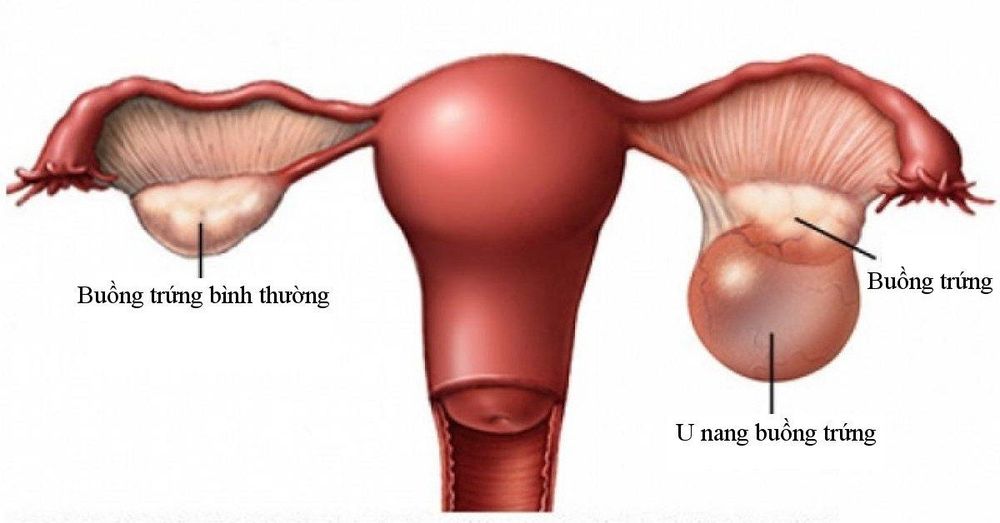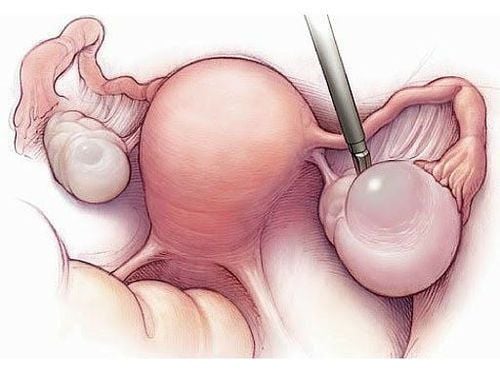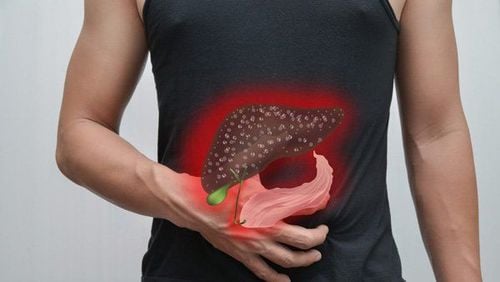This article is professionally consulted by doctors from the Department of Obstetrics and Gynecology, Vinmec Ha Long International General Hospital.
Ovarian cysts are a common gynecological disease in women of childbearing age. Treatment can be supported by medication or surgery. However, many women often wonder about the size of ovarian cysts which should be operated. Find out through the following shares from gynecological experts at Vinmec.
1. What is ovarian cyst?
Ovarian cysts are the condition of tumors or fluid-filled sacs appearing in the ovaries of women, especially during reproductive age. Normally, these tumors are benign and will disappear on their own without the need for treatment. In addition, there are cases where the tumors cannot disappear on their own but grow larger, causing many dangerous complications.
There are many methods of treating ovarian cysts, for cysts that are detected early, the most commonly used method is internal medicine. The doctor will monitor the shrinkage or rupture of the cyst after giving the patient medication. For large tumors, treatment will be performed by surgical removal of the tumor, to avoid complications of rupture or torsion of the ovary. Thus, the question that many women ask is at what size should an ovarian cyst be operated?

2. When is ovarian cyst surgery needed?
Most ovarian cysts are benign, only need regular monitoring and do not require treatment. However, in some cases that are considered abnormal and dangerous, the doctor is likely to prescribe surgery:
- Large tumor: When a large ovarian cyst is detected, the doctor may prescribe surgery to remove the tumor.
- Malignant ovarian tumours: Malignant or uncertain tumors need to be removed as soon as possible.
- Cysts with cancer cells: The risk of ovarian cancer is completely possible, the tumor needs to be removed as soon as cancer cells are detected.
- Cysts due to endometriosis: Cysts formed by endometriosis need to be surgically removed immediately to prevent infertility in women.
- Non-functional cysts: These are cysts in liquid, dermoid, or mucous form. These forms cannot disappear on their own and need to be surgically removed to prevent complications.
- Cyst rupture, cyst torsion: These are complications of ovarian cysts, requiring immediate surgical intervention to save the patient's life.
In addition, patients with ovarian cysts at menopausal age or who do not intend to have children can ask the doctor for surgery to avoid dangerous complications. Therefore, at what size does an ovarian cyst need to be surgically removed?
3. At what size should an ovarian cyst be operated?
When the size of the cyst is relatively large or there are signs of cancer, the patient will likely be indicated for surgery.
Usually, ovarian cysts larger than 5cm will be considered for surgery by doctors. For women of reproductive age, the condition needs to be closely monitored before deciding on surgery.
Meanwhile, ovarian cysts can transform into polycystic ovaries or corpus luteum cysts. If the size of the cyst does not show signs of shrinking or disappearing within 1-2 menstrual cycles or continues to grow larger, it is necessary to pay attention and check regularly. Thus, the question of at what size should an ovarian cyst be operated depends on the progression of the disease, the reproductive age and the health status of the patient.

4. Can you have children after ovarian cyst surgery?
There are many women of reproductive age who have ovarian cysts and are forced to have surgery to save their lives. Therefore, can you have children after ovarian cyst surgery?
The answer to this question depends on many different factors such as the extent of lesion, the type of cyst, and the surgical method. In cases where surgery is performed to only remove the tumor or even remove one ovary, if the remaining ovary is not affected, the good news for "future mothers" is that the ability to have children after ovarian cyst surgery is still completely normal.
5. How long after ovarian cyst surgery can you get pregnant again?
According to gynecological experts at Vinmec, the time it takes to get pregnant after ovarian cyst surgery is determined by many factors, including:
- The extent of ovarian damage: After surgery, the less damage to the ovaries, the shorter the recovery time for fertility.
- Type of ovarian cyst: Getting pregnant after ovarian cyst surgery depends on the type of cyst, its size, and whether or not there are malignant cells.
- Surgical method: Minimally invasive laparoscopic ovarian cyst surgery helps women recover faster than "traditional" surgery, which is open surgery.
- Where to have cyst surgery: Performing ovarian cyst removal at a reputable hospital with modern facilities and equipment is also an important factor for ovarian function as well as fertility after surgery.
For ovarian cysts, the earlier the disease is detected, the less it will affect the ability to become a mother later. Therefore, women need to have regular health check-ups to detect and promptly treat all abnormalities of the body.
Currently, Vinmec International General Hospital is implementing a basic gynecological examination and screening package. Women can refer to and choose the examination and screening package at the hospital to detect early infectious diseases as well as early screening for gynecological cancer (cervical cancer).

To arrange an appointment, please call HOTLINE or make your reservation directly HERE. You may also download the MyVinmec app to schedule appointments faster and manage your reservations more conveniently.








